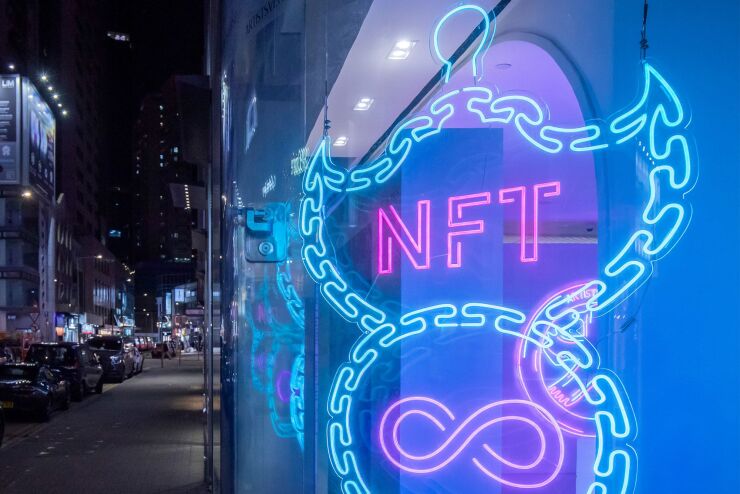The Treasury and the IRS are soliciting feedback for upcoming guidance on the tax treatment of nonfungible tokens, or NFTs, as collectibles. NFTs that are collectibles would be taxed at a rate not exceeding 28%, while an asset that is not a collectible would be subject to a lower capital gains rate.
In IRS Notice 2023-27, the IRS suggested using a "look-through" approach, according to Charles Kolstad, a partner in the private client, tax and corporate teams at law firm Withers Bergman. "In such a case, the classification would turn on the nature of the underlying assets," he observed.
In related material, the IRS defines an NFT as "a unique digital identifier that is recorded using distributed ledger technology and may be used to certify authenticity and ownership of an associated right or asset." Distributed ledger technology, such as blockchain, uses independent digital systems to record, share and synchronize transactions, the details of which are recorded simultaneously on multiple nodes in a network. A token is an entry of data encoded on a distributed ledger, which can be used to identify ownership of both NFTs and fungible tokens, such as cryptocurrency, as described in Revenue Ruling 2019-24.
Section 408(m)(2) of the Tax Code provides a specific list of items that constitute collectibles for certain purposes. Acquisition of a collectible by an IRA or individually directed account of a qualified plan is treated as a distribution from the account equal to the cost to the account of the collectible. Collectibles do not warrant the more favorable capital gains rate because their purchase and sale is not considered a factor in growing the economy.
The IRS includes works of art, rugs or antiques, metals or gems, stamps or coins, and alcoholic beverages in its list of collectibles.

Pending the issuance of guidance, the IRS intends to determine whether an NFT constitutes a Section 408(m) collectible by analyzing whether the NFT's associated right or asset is a Section 408(m) collectible using a look-through analysis. Under the look-through analysis, an NFT constitutes a Section 408(m) collectible if the NFT's associated right or asset is a Section 408(m) collectible.
"For example, a gem is a Section 408(m) collectible under Section 408(m)(2)(C) and therefore an NFT that certifies ownership of a gem constitutes a Section 408(m) collectible," the service explained. "Similarly, an NFT does not constitute a Section 408(m) collectible if the NFT's associated right or asset is not a Section 408(m) collectible. For example, a right to use or develop a 'plot of land' in the virtual environment generally does not constitute a Section 408(m) collectible."
The IRS noted that applying the "look-through" analysis where the NFT's associated right or asset is a digital file raises the question as to whether the digital file is a "work of art" under Section 408(m)(2)(A).
"An NFT is largely a 'Certificate of Provenance' and not an asset itself," Kolstad said. "I agree with this approach, but I think clarity on the treatment of digital assets is needed. Since digital assets are intangible assets, such as JPEGs or PDFs, and not physical art objects, I believe the appropriate treatment is to not classify digital art NFTs as collectibles."
The notice states that the IRS will look to see what the NFT actually represents, remarked Tony Tuths, digital asset practice leader at KPMG Tax: "This is a result that most practitioners in the digital asset space had been pushing for. If an asset, including an NFT, constitutes a collectible for tax purposes, then the long-term capital gains rate for that asset rises from 20% to 28%, and the asset is not suitable to be held in an IRA or other qualified retirement account, among other tax effects. It remains an open question whether a piece of digital art can constitute a 'work of art' or whether it needs to be tangible. Either way, the notice is very welcome and takes a logical approach to the taxation of NFTs, without rushing to judgment on open issues, but rather seeking public comment."





